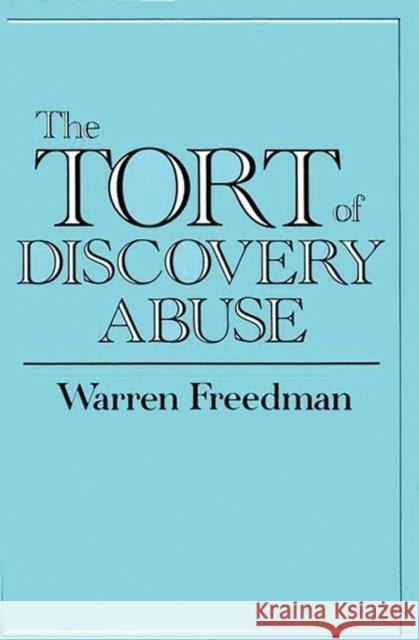The Tort of Discovery Abuse » książka
The Tort of Discovery Abuse
ISBN-13: 9780899303321 / Angielski / Twarda / 1989 / 172 str.
In his latest work, Freedman seeks to establish a contemporary tort of discovery abuse. As he notes at the outset, the discovery process has become a central feature of modern litigation. He deals with the ways in which this interrogatory process can be abused, leading to excessive, costly delays in pretrial hearings and in subsequent litigation, if not settlement of the case. Discovery abuse places onerous demands on litigants who can be forced to produce documentation in such quantities, for example, that the costs involved discourage further litigation. At the outset, Freedman fully examines the nature of the discovery process itself, including international discovery procedures, and then explores abuses of the process and their ramifications for future litigation.
Organized in two main parts, the book begins with an introductory overview of the discovery process in general. Subsequent chapters address issues such as American Bar Association standards for discovery and procedure before the criminal trial; federal, state, and civil discovery procedures; non-party access to discovery materials; discovery in arbitration; and discovery procedures abroad. The second section reveals the nature of the abuses of the discovery process, including the destruction or spoliation of evidence, abuses connected with the Freedom of Information Act, and discovery abuses in the insurance field. The book concludes with chapters devoted to sanctions and remedies for discovery abuse and the Freedman's recommendation for the intentional tort of discovery abuse. Both a practical handbook for corporate attorneys and an ideal supplemental text for courses in business law, this volume offers a clear and comprehensive treatment of a growing problem in litigation proceedings.











